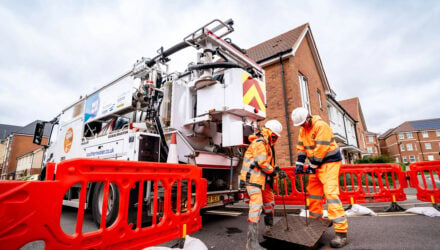Peter Barnes, Head of Automotive at DWF shares his comments on SMMT’s manufacturing figures for June 2020: “As the pandemic continues to impact businesses and manufacturing globally, and fears of a second wave challenge consumer confidence, the automotive industry faces challenges like no other. It is, therefore, no surprise that the figures released today from the SMMT demonstrate that only 381,357 cars were produced on British production lines between January and June 2020, a value 42.8% lower than last year.
 “Such figures were produced largely in part by the factory closures amid supply chain problems and concerns for workers’ health. The sudden fall in demand by consumers added to the UK car industry producing the lowest number of vehicles since 1954 when Second World War rationing ended.
“Such figures were produced largely in part by the factory closures amid supply chain problems and concerns for workers’ health. The sudden fall in demand by consumers added to the UK car industry producing the lowest number of vehicles since 1954 when Second World War rationing ended.
“The impact of these figures means that the UK is likely to produce 880,000 vehicles this year which represents a significant downturn on the numbers anticipated before the Brexit poll of 2m vehicles per year. Even if a full trade deal with the EU is possible from January 2021, a best-case scenario plotted by the SMMT going forwards is that UK plants produce about 1.2m vehicles per year by the middle of this decade.
“The coronavirus pandemic caps a perfect storm for the UK car industry which has been facing falling investments and uncertainty since the 2016 vote to leave the EU. The future now depends on securing a good deal. Positive news in respect of treatments and vaccines for coronavirus will assist a quicker recovery from a global economic downturn, and it will no doubt boost consumer confidence and purchasing power when they are available.”
Alfonso Martinez, managing director of LeasePlan UK, has issued the following statement in response to the news that UK car production has slumped to the lowest level since 1954; specifically around the double impact that Covid plus Brexit tariffs could have on vehicle supply.
“The figures are a stark reminder of the automotive industry’s reliance on overseas suppliers and the unequivocal need for the UK to have guarantee of supply of the latest EVs post Brexit. We’re on the cusp of an EV revolution, but the only way to facilitate a smooth and timely transition is for UK drivers to have access to the right vehicles at the right time. Without it, the nation cannot deliver on its commitment to stop the sale of new internal combustion engine vehicles in time for a 2032 deadline. EVs are the future of UK transport, and we are ready for the switch, but we need greater clarity to help us navigate this next chapter.”


















